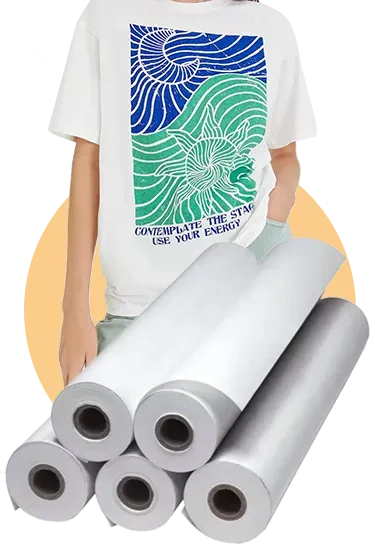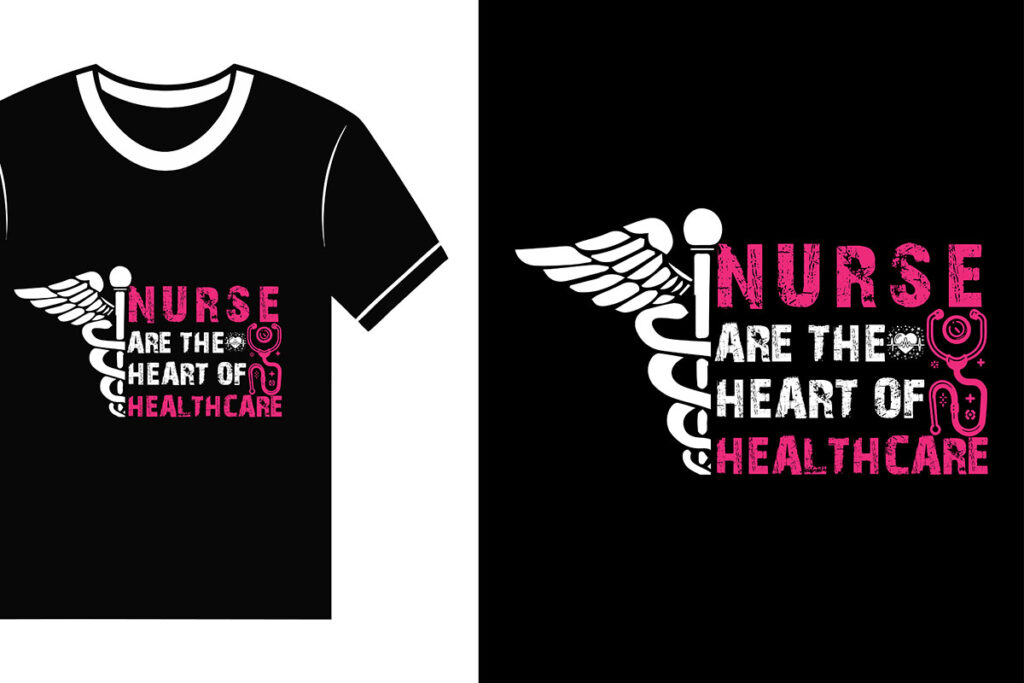In the modern printing landscape, Eco-Friendly DTF Supplies are reshaping the way businesses approach their production processes. As sustainability becomes increasingly vital, these innovative materials provide a responsible alternative for those engaged in DTF printing technology. By utilizing environmentally friendly inks and biodegradable DTF films, printers are able to minimize their environmental impact while still achieving high-quality results. This commitment to employing sustainable printing materials not only meets the rising consumer demand for greener options but also supports a broader initiative towards renewable energy in printing. In this article, we delve into the transformative benefits of eco-friendly DTF supplies and how they are paving the way for a more sustainable future.
The realm of eco-conscious printing is rapidly expanding, particularly through the adoption of sustainable Direct to Film (DTF) materials. Businesses are increasingly looking for ways to utilize environmentally responsible ink systems and films that are designed to degrade naturally after use. This shift towards utilizing ethical and renewable resources enhances not only the environmental footprint of printing operations but also resonates with conscientious consumers. As industry stakeholders explore alternative eco-friendly solutions, the integration of practices that embrace natural and recyclable substances is becoming commonplace. This discussion highlights the significant trends and advancements that solidify DTF printing as a leader in sustainable production practices.
Innovations in Eco-Friendly DTF Supplies
The printing industry is witnessing groundbreaking innovations in eco-friendly DTF supplies, fundamentally transforming the way businesses approach sustainability. Manufacturers are now focusing on incorporating sustainable printing materials that include biodegradable DTF films and environmentally friendly inks. These advanced materials not only reduce environmental impact but also align with consumer demand for greener products. Innovative processing techniques are allowing for high-quality prints while adhering to environmentally responsible practices.
As sustainability becomes a core principle for many organizations, the development of eco-friendly DTF supplies, such as water-based inks that are free from toxic substances, is paving the way for a cleaner future. Companies like Avery Dennison and Mimaki have stepped forward, utilizing renewable energy in printing processes and ensuring their products meet eco-certification standards. Such innovations not only help in minimizing carbon footprints but also empower businesses to lead initiatives towards a sustainable printing landscape.
The Role of Sustainable Inks and Films in DTF Printing
Sustainable inks and films are changing the narrative in the DTF printing sector, providing a viable alternative to traditional materials that harm the environment. These eco-friendly inks are designed to minimize toxicity while offering the vibrant colors and durability that printers require. Manufacturers are now able to use organic pigments and water-based formulations that significantly reduce the ecological footprint across the lifecycle of the product.
Moreover, the introduction of recyclable DTF films enhances the sustainability appeal of this printing method. As these films can be reprocessed and converted into new materials, they help close the loop in the manufacturing process. This proactive approach not only satisfies environmental regulations but also meets the growing consumer demand for products that champion sustainability, contributing to a positive brand image.
Biodegradable DTF Films and Their Impact
Biodegradable DTF films represent a substantial advancement in environmentally conscious printing supplies. By engineering films that can break down naturally, suppliers are addressing one of the pressing issues in manufacturing — waste. Traditional synthetic films can linger in landfills for centuries, contributing significantly to pollution. In contrast, biodegradable options disintegrate over time, making them a more sustainable choice for environmentally aware businesses.
The impact of these biodegradable options extends beyond waste reduction; they also align with increasing regulations aimed at minimizing plastic use. Printers opting for biodegradable DTF films can promote their commitment to sustainability, which positively influences customer loyalty. Consumers are increasingly searching for products that reflect their values, and using biodegradable materials can set businesses apart in a competitive market.
Energy Efficiency in Eco-Friendly DTF Printing Operations
Energy efficiency is a vital component of eco-friendly DTF printing practices. Companies that prioritize renewable energy solutions in their operations not only reduce their carbon footprint but also minimize operational costs. By investing in solar or wind energy systems, printers can power their facilities sustainably, leading to a significant reduction in greenhouse gas emissions.
Implementing energy-efficient machinery plays a crucial role in this process. Advanced printing technologies are designed to use less energy without sacrificing performance, resulting in both environmental benefits and cost-effectiveness. This commitment to energy efficiency is becoming increasingly important for companies aiming to showcase their dedication to sustainable practices in the eyes of eco-conscious consumers.
Consumer Trends Towards Eco-Friendly DTF Supplies
Recent trends indicate a marked shift in consumer preferences towards eco-friendly products, directly influencing the DTF printing market. As awareness of environmental issues grows, consumers are prioritizing businesses that demonstrate a commitment to sustainability. This trend goes beyond mere preference; it often influences purchasing decisions, as customers seek out brands that align with their values.
As a result, companies are finding that investing in eco-friendly DTF supplies not only supports global sustainability efforts but also enhances their market appeal. Innovative marketing campaigns highlighting responsible sourcing and sustainable practices can create a loyal customer base, drawing in environmentally conscious consumers who are eager to support green initiatives.
Achieving Environmental Certifications for DTF Printing Supplies
Achieving environmental certifications is crucial for businesses looking to validate their eco-friendly claims in the DTF printing industry. Certifications such as OEKO-TEX and Green Seal provide independent verification that products are safe for consumers and the environment. Obtaining these certifications demonstrates a company’s commitment to sustainable practices and builds trust with consumers who are increasingly seeking sustainable products.
With a focus on transparency and accountability, certifications serve as an essential marketing tool. They not only enhance company reputations among eco-minded consumers but also create competitive advantages in the market. Businesses that invest the time and resources to obtain these certifications can effectively communicate their commitment to sustainability, helping them stand out in an ever-crowded marketplace.
Frequently Asked Questions
What are eco-friendly DTF supplies and why are they important?
Eco-friendly DTF supplies refer to sustainable printing materials used in Direct to Film (DTF) printing technology that minimize environmental impact. These supplies, like biodegradable DTF films and environmentally friendly inks, are essential for reducing waste and promoting sustainable practices in the printing industry.
How do environmentally friendly inks benefit DTF printing technology?
Environmentally friendly inks used in DTF printing technology provide a healthier alternative to traditional inks, as they are typically water-based and free from toxic chemicals. This not only contributes to a safer work environment but also reduces the carbon footprint associated with production and disposal.
What are biodegradable DTF films and how do they enhance sustainability?
Biodegradable DTF films are eco-friendly materials that break down more easily in the environment compared to traditional films. By using these films, printers can significantly reduce landfill waste, contributing to more sustainable printing practices and helping businesses meet consumer demand for greener products.
How does renewable energy play a role in eco-friendly DTF supplies?
Renewable energy in the production of eco-friendly DTF supplies is crucial for minimizing greenhouse gas emissions. Many manufacturers are now adopting energy-efficient machinery powered by renewable sources, which helps to reduce the overall environmental impact of DTF printing technology.
Why should businesses choose sustainable printing materials in DTF printing?
Choosing sustainable printing materials in DTF printing is vital as it aligns with consumer preferences for eco-friendly products. This practice not only reduces environmental impact but also enhances brand reputation and can lead to increased customer loyalty and profitability in a competitive market.
What certifications should I look for when purchasing eco-friendly DTF supplies?
When purchasing eco-friendly DTF supplies, look for certifications such as OEKO-TEX, Green Seal, and ISO 14001. These certifications indicate that the materials and processes comply with strict environmental standards, ensuring that the products are genuinely sustainable and safe for both consumers and the planet.
| Key Points | Details |
|---|---|
| Introduction | Sustainability in printing is essential; eco-friendly DTF supplies are vital for reducing environmental impact. |
| Understanding DTF Printing | DTF printing involves transferring designs onto fabrics using heat. Eco-friendly supplies reduce environmental footprints. |
| Sustainable Inks and Films | Water-based, non-toxic inks replace harmful solvents. Eco-friendly films are recyclable and made from safe materials. |
| Recyclable and Biodegradable Materials | Innovations like biodegradable release liners reduce landfill waste in DTF processes and support sustainability. |
| Energy-Efficient Production | Investing in renewable energy and energy-efficient machinery lowers greenhouse gas emissions and costs. |
| Market Trends and Consumer Awareness | There is a growing demand for sustainable products; companies adopting eco-friendly practices gain consumer trust. |
| Environmental Certifications | Certifications ensure that products meet environmental standards, building consumer confidence in eco-friendly options. |
Summary
Eco-Friendly DTF Supplies are reshaping the printing industry’s approach to sustainability, marking a significant shift towards greener options. With increasing consumer demand for environmentally responsible products, businesses in the printing sector are re-evaluating their supply chains to include eco-friendly inks, films, and materials. Companies like Avery Dennison and Mimaki lead by example, providing water-based inks and recyclable films that significantly diminish the environmental impact without sacrificing quality. As energy-efficient practices become more prevalent, the move towards renewable energy sources further strengthens the industry’s commitment to sustainability. By embracing Eco-Friendly DTF Supplies, businesses not only align with the values of today’s eco-conscious consumers but also position themselves as frontrunners in the quest for a greener future.



